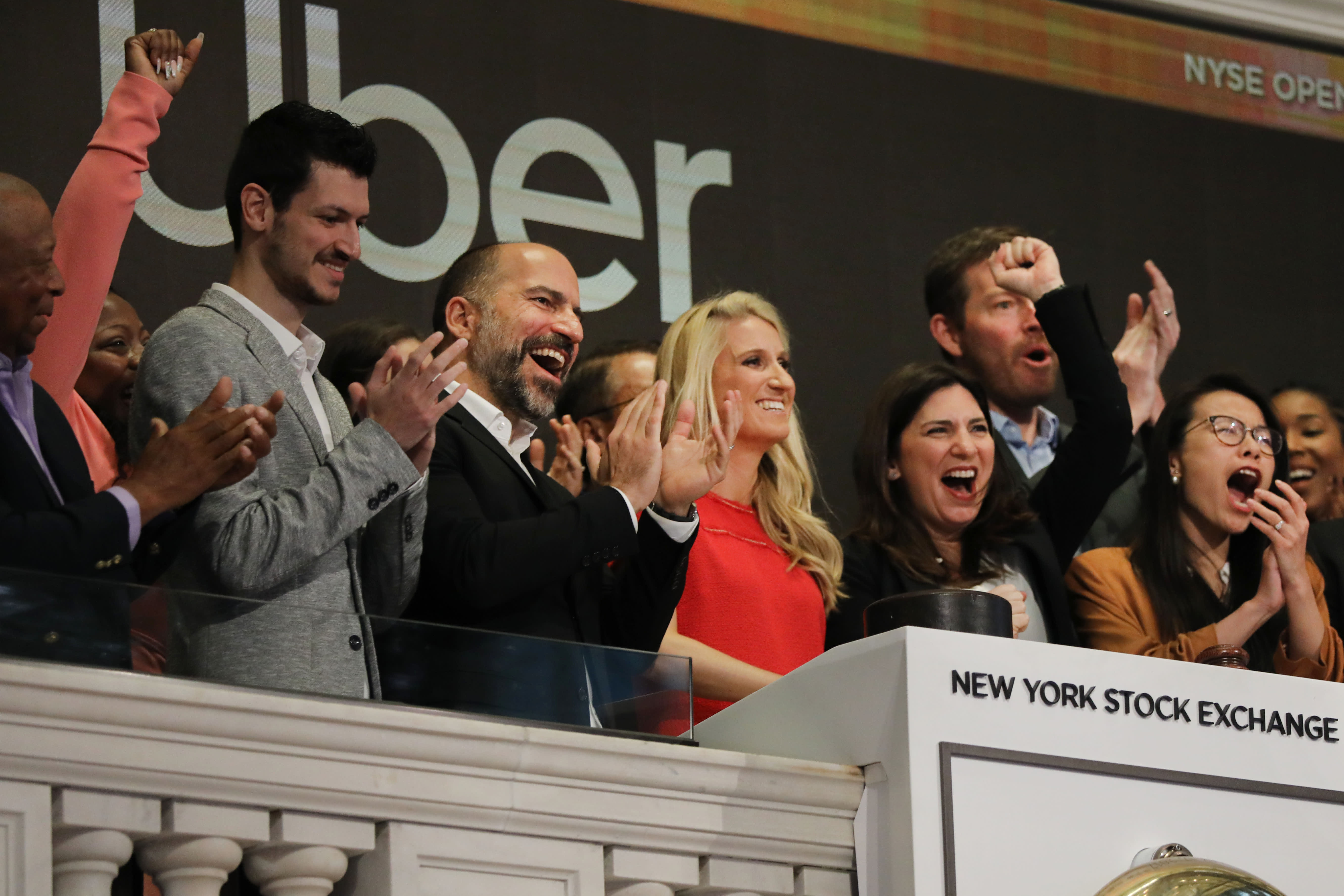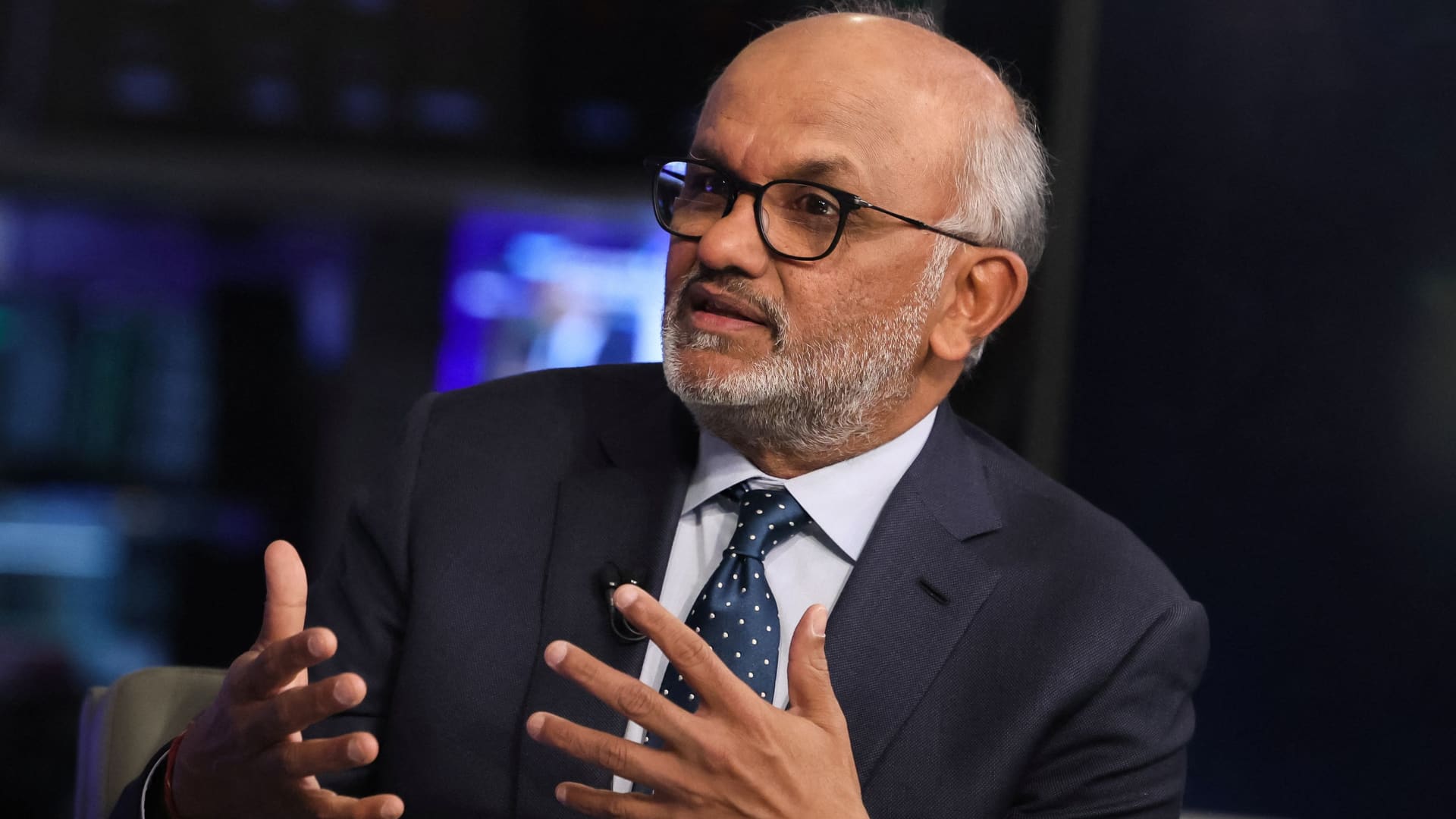Uber beats estimates, but core business loses $509 million in Q2

Uber beat estimates on the top and bottom line and turned an unexpected one-time profit during the second quarter.
Shares dipped more than 4% in after-hours trading.
Here’s how Uber did, compared with expectations of analysts surveyed by Refinitiv:
- Earnings per share: 58 cents vs. an expected loss of 51 cents
- Revenue: $3.93 billion vs. $3.75 billion expected
Uber reported a net income of $1.1 billion for the quarter. That was largely due to unrealized gains of $1.4 billion in Didi and $471 million in Aurora. Shares of Didi have dropped about 37% over the last month, however, shrinking Uber’s stake in the company by $2 billion last week. Uber’s operating loss was still $1.19 billion.
Its adjusted EBITDA loss was $509 million, down $150 million from the prior quarter but an improvement of $328 million from last year. EBITDA refers to earnings before interest, taxes, depreciation and amortization.
Uber reaffirmed its expectation that it will reach profitability on an adjusted EBITDA basis by the end of this year.
“As we make progress towards that important milestone, we expect our Adjusted EBITDA loss in Q3 to improve to less than $100 million in addition to record Gross Bookings between $22 and $24 billion,” CFO Nelson Chai said in a letter to investors.
So far, Uber’s Eats segment has bolstered the company to withstand many of the Covid headwinds. When people stopped traveling, they turned to food and goods deliveries. Uber said its delivery business stayed strong even as Covid restrictions eased around the world.
Here’s how Uber’s largest business segments performed in the second quarter of 2021:
- Mobility (gross bookings): $8.6 billion, up 184% from a year ago
- Delivery (gross bookings): $12.9 billion, up 85% from a year ago
Delivery revenue has continued to outperform its core ride-hailing business at $1.96 billion, compared with $1.62 billion. In an update to shareholders, the company said that its number of delivery merchants grew to more than 750,000 in the quarter.
The company has struggled with supply and demand imbalances because of the pandemic, leading to surge pricing and increased wait times. CEO Dara Khosrowshahi said on the company’s call with investors that prices and wait times aren’t meeting company targets.
“In Q2 we invested in recovery by investing in drivers and we made strong progress, with monthly active drivers and couriers in the US increasing by nearly 420,000 from February to July,” Khosrowshahi said in a statement.
The company did not provide an exact number of drivers, but Khosrowshahi said he was optimistic about growth rates after the company made heavy investments in bringing people back. The company added 30% more drivers in the U.S. from June to July.
“The good news is we’re now in a good place where we’re able to pull those investments back,” Khosrowshahi said. “The investments were big, but the investments were worth it.”
Uber reported 1.51 billion trips on the platform, up 4% from the first quarter and 105% from the year-ago quarter. Uber said its drivers and couriers earned an aggregate $7.9 billion during the quarter.
Uber’s largest American competitor, Lyft, also reported financial results this week. The company reported its first quarterly adjusted EBITDA profit, posting $23.8 million, a quarter earlier than expected. It also beat Wall Street guidance on both the top and bottom lines.




